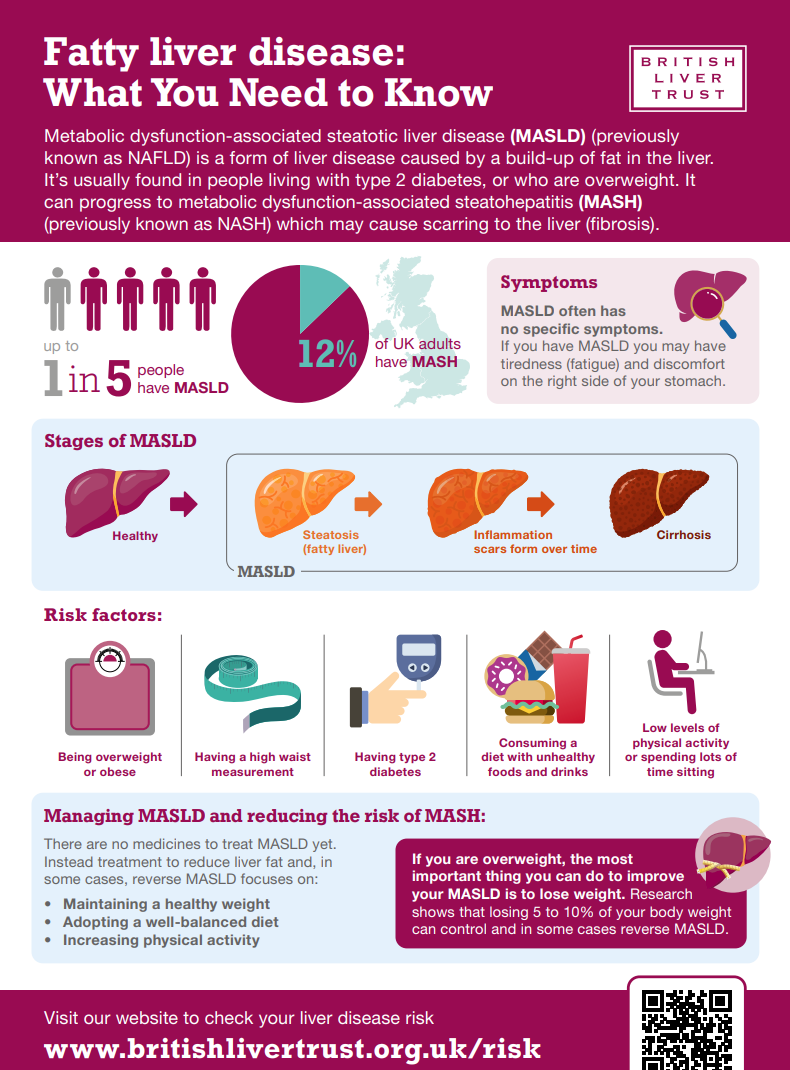
Today is GLOBAL FATTY LIVER DAY . It is aimed at raising awareness about fatty liver disease and promoting healthier lifestyle choices.
Fatty liver disease, now known as metabolic dysfunction-associated steatotic liver disease (MASLD), is a mounting health issue in the United Kingdom. Affecting up to one in three adults, it’s primarily driven by the rising prevalence of obesity and sedentary lifestyles. Unlike alcohol-related liver conditions, MASLD is not caused by excessive alcohol consumption but by fat accumulation in the liver.
The disease progresses through stages, starting with simple steatosis, where fat builds up without causing major harm. If unchecked, it can advance to non-alcoholic steatohepatitis (MASH), causing liver inflammation.
Inflammation is the body’s response to injury or foreign substances. The immune system sends out signals, causing the liver to become inflamed. This chronic inflammation damages liver cells, leading to cell death. As liver cells die, the body attempts to repair the damage. However, this process can lead to fibrosis, where scar tissue forms. Over time, extensive scarring can result in cirrhosis, permanently impairing liver function.
Risk factors for fatty liver disease include obesity, type 2 diabetes, high cholesterol, and high blood pressure. Lifestyle factors play a crucial role, and early stages often show no symptoms, making it a silent threat.
Prevention and management focus on lifestyle changes, such as maintaining a healthy weight, eating a balanced diet, and engaging in regular physical activity. Even a daily ten-minute walk can significantly reduce the risk. Education and awareness are key to tackling this growing health concern in the UK.
The RVHLSG committee and the RVH Regional Liver Unit really wants to make the general public much more aware of this potentially serious condition as so many patients are now presenting there with this liver condition; some already with advanced stages of liver cirrhosis. So, to help, we have brought together several booklets and factsheets with the help of the British Liver Trust. You can access these by visiting our “Medical News Updates” section on the Homepage.
